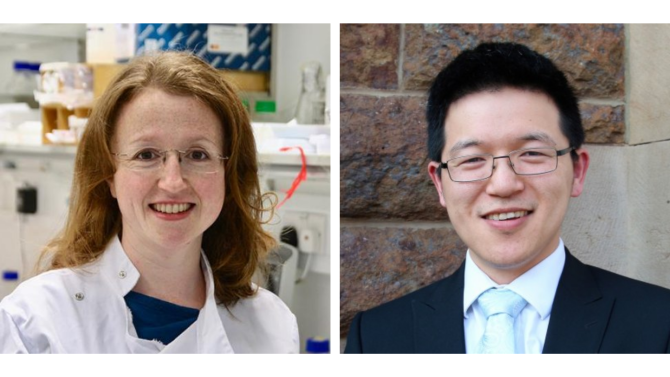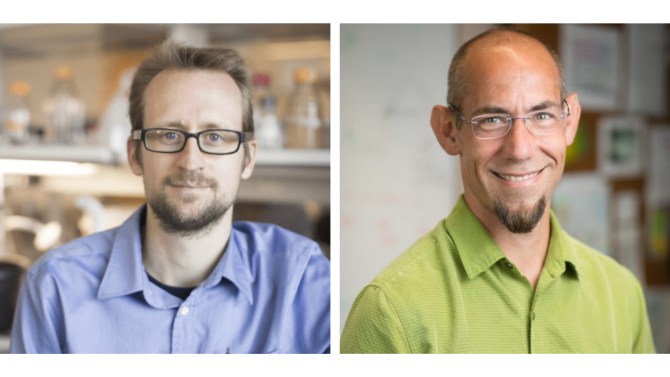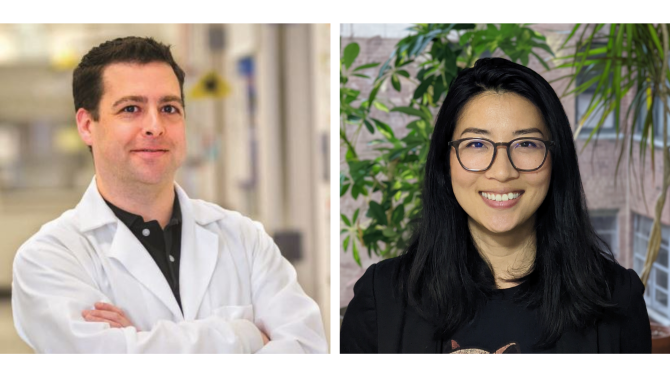Three innovative approaches to treating infections, fighting cancer, and enhancing the body's immune system have been selected for funding through the Cornell Center for Immunology's 2025 Multidisciplinary Seed Grants.
Challenging health issues are often connected to many areas of science-such as biology, chemistry, genetics, and nutrition. No single field alone can solve them. Big breakthroughs in health come from scientists working together across disciplines.
Because of this, the center funds early collaborations across research disciplines to spark discoveries that can improve public health, reduce healthcare costs, and save lives.
"These grants demonstrate our commitment to supporting investigative teams as they collaborate on complex questions in immunology and develop innovative, discovery-driven technologies," said Deborah Fowell, director of the Center for Immunology and chair of the Department of Microbiology and Immunology.
This year, two studies are supported by the Center and a third made possible through the generous support of the Friedman Center for Nutrition and Inflammation.
2025 Grant Projects:
Sarah Caddy, assistant professor with the Baker Institute for Animal Health and in the Department of Microbiology and Immunology at the College of Veterinary Medicine, and Meng Wang, assistant professor of nutritional sciences at the College of Human Ecology
"Evaluating the effect of endogenous formaldehyde on immune responses to viruses" - $50,000
In this work, the researchers will explore how a common genetic variant found in millions of people might naturally enhance the immune system's ability to fight viruses. The research focuses on how elevating a naturally produced metabolite in the body, formaldehyde, could play a role in activating immune cells. Understanding this process could lead to better vaccines and new ways to strengthen the body's natural defenses against infections and cancers.
Tobias Doerr, associate professor of microbiology at the Weill Institute for Cell and Molecular Biology and College of Agriculture and Life Sciences, and Brian Lazzaro, Liberty Hyde Bailey Professor of ecology and evolutionary biology at the College of Arts and Sciences
"Role of dynamic interactions between innate immunity and bacterial stress responses in shaping infection outcomes" - $50,000
This work will investigate the interplay between the body's natural immune functions and bacterial responses, and how this relationship determines infection outcomes. Using fruit flies and a common disease-causing bacterium (Enterobacter cloacae), the work will study how the immune system and bacteria interact to determine the course of an infection. Their findings could improve treatments for bacterial infections through a better understanding of how the body's natural defenses and bacterial survival strategies influence disease outcomes.
Andrew White, associate professor of biomedical sciences at the College of Veterinary Medicine, and Colleen Lau, assistant professor of microbiology and immunology at the College of Veterinary Medicine.
"Harnessing Cytokine-Induced Memory-Like Natural Killer Cells to Synergize with BRAF/MEKi Therapy in Melanoma" - $50,000
Combining immune-boosting strategies with targeted cancer therapies, this research will explore ways to help the immune system fight melanoma, a serious type of skin cancer. Testing a special type of immune cells, the researchers are investigating whether these cells can work alongside existing treatments to eliminate residual cancer cells and prevent relapse. Their ultimate goal is to develop more effective treatments for patients with melanoma.
Spanning four Cornell colleges-College of Agriculture and Life Sciences, College of Arts and Sciences, College of Human Ecology, and College of Veterinary Medicine-and six departments, as well as multiple multidisciplinary research facilities based within Cornell Research & Innovation, these interdisciplinary projects highlight the power of collaboration in advancing immunological discovery.









